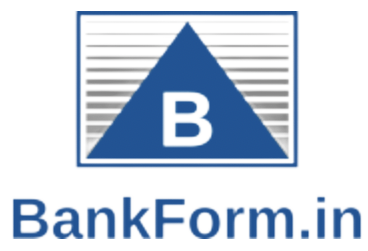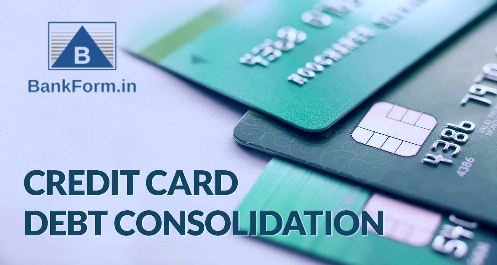What is Credit Card Debt Consolidation?
Credit card debt consolidation is a financial strategy that combines multiple credit card balances into a single, lower-interest loan or line of credit. The goal of consolidating credit card debt is to make it easier to pay off the debt by reducing the interest rate and/or streamlining the number of monthly payments. There are various ways to consolidate credit card debt, including personal loans, balance transfer credit cards, and home equity loans.
Balance transfer credit cards allow you to transfer several credit card balances onto a single card with a lower interest rate. These cards often offer a promotional interest rate, such as 0%, for certain months, making it easier to pay off the debt. However, balance transfer credit cards often charge a balance transfer fee, typically a percentage of the amount being transferred. It’s essential to carefully consider the terms of the balance transfer offer and ensure that the interest savings outweigh the balance transfer fee.
Personal loans are another option for consolidating credit card debt. Personal loans are typically unsecured, meaning that you don’t need to put up collateral, such as a house or car, to obtain the loan. Personal loans also tend to have fixed interest rates, making it easier to budget and pay off the debt. However, personal loans may have highest interest rates than balance transfer credit cards or home equity loans, depending on your creditworthiness.
Home equity loans, also known as second mortgages, allow you to borrow against the equity in your house. Home equity loans hardly have lower interest rates than personal loans. They may offer tax benefits, as the interest you pay on a home equity loan may be tax-deductible (consult with a tax professional to determine if you qualify). However, home equity loans also risk losing your home if you can’t make the payments.
It’s essential to carefully consider the pros and cons of each option and choose the one that best fits your financial situation. Here are some steps to consider when deciding how to consolidate credit card debt:
- Interest rates: Look for a consolidation option with the lowest interest rate, as this will help you save cash on interest and pay off the debt faster.
- Fees: Be aware of any fees associated with the consolidation option, such as balance transfer fees or origination fees.
- Repayment terms: Consider the repayment terms, including the length of the loan and the monthly payment amount. A more extended repayment period may result in lower monthly payments, but it will also result in paying more in interest over time.
- Credit score: Consolidating credit card debt can positively impact your credit score if it helps you pay off the debt faster and improve your credit utilization ratio (the amount of credit you’re using compared to the amount of credit available to you). However, applying for a new credit card or loan can also temporarily dip your credit score.
- Tax considerations: As mentioned, the interest on a home equity loan may be tax-deductible. Consult with a tax professional to determine if this is a benefit for your specific situation.
It’s also important to remember that consolidating credit card debt is not a magic solution to your financial problems. You’ll still need to make a budget and commit to paying off the debt. In fact, consolidating credit card debt without addressing the underlying spending habits that led to the debt in the first place can actually make the problem worse. If you are struggling to pay off credit card debt, it may be helpful to seek the advice of a financial advisor or credit counselor to develop a plan to get out of debt and improve your financial situation.
Advantage of Credit Card Debt Consolidation
Credit card debt consolidation combines multiple credit card balances into a single, lower-interest loan. This can be a good option for people who are struggling to pay off multiple credit cards with high-interest rates because it can help them save money on interest and make their monthly payments more manageable. In this article, we’ll explore some of the key advantages of credit card debt consolidation.
- Lower Interest Rates: One of the main benefits of credit card debt consolidation is that it can help you save money on interest. When you consolidate your credit card debt into a single loan, you may be able to secure a lower interest rate than the rates you were paying on your credit cards. This is because consolidation loans often have lower interest rates than credit cards, especially if you have good credit.
- Simplified Payment Process: Consolidating your credit card debt into a single loan can also make it easier to manage your payments. Instead of keeping track of multiple credit card due dates and payment amounts, you’ll only have to focus on one loan payment each month. This can be especially helpful if you’re struggling to stay organized or are worried about missing a payment.
- Improved Credit Score: Another advantage of credit card debt consolidation is that it can help improve your credit score over time. When you pay off your credit card balances and reduce your debt, your credit utilization ratio (the amount of credit you’re using compared to the amount of credit available to you) will decrease. This can help improve your credit score because credit utilization is an essential factor that lenders consider when determining your creditworthiness.
- Reduced Stress: Finally, credit card debt consolidation can help reduce the stress and anxiety that can come with carrying a lot of credit card debt. It can be a huge relief if you can simplify your debt and make more manageable monthly payments.
While credit card debt consolidation can be a good option for many people, it’s essential to carefully consider whether it’s the right choice for you. For example, if you can pay off your credit card balances in full within a short period, it may not make sense to consolidate your debt. Additionally, it may not be worth it if you cannot qualify for a consolidation loan with the lowest interest rate than you’re currently paying on your credit cards.
Overall, credit card debt consolidation can be a helpful tool for people who are struggling to manage multiple credit card balances with high-interest rates. It can help them save money on interest, simplify the payment process, improve their credit score, and reduce stress. If you’re considering credit card debt consolidation, it’s essential to do your research and understand the potential risks and benefits before making a decision.
Check Disadvantage of Credit Card Debt Consolidation
Credit card debt consolidation combines multiple credit card balances into a single, lower-interest loan. While this can be a valuable option for people who are struggling to pay off multiple credit cards with high-interest rates, it’s essential to understand that there are also some potential disadvantages to credit card debt consolidation. In this article, we’ll explore some of the key drawbacks of credit card debt consolidation.
- Upfront Fees: One potential disadvantage of credit card debt consolidation is that it may involve upfront fees. For example, you may have to pay an origination fee to cover the price of processing your consolidation loan. Additionally, you may have to pay other expenses, such as application fees, closing costs, or balance transfer fees. These fees can add to the overall cost of your consolidation loan and may make it less affordable.
- More extended Repayment Period: Another potential disadvantage of credit card debt consolidation is that it may extend the repayment period for your debt. When you consolidate your credit card balances into a single loan, you’ll generally be given a more extended repayment period than you would have with a credit card. This can be helpful if you need lower monthly payments, but it also means that you’ll be paying off your debt for a more extended period of time. This can increase the overall cost of your debt, especially if you’re paying a higher interest rate on your consolidation loan.
- Negative Impact on Credit Score: Credit card debt consolidation can also have a negative impact on your credit score in some cases. Applying for a consolidation loan will result in a difficult inquiry on your credit report, which can temporarily lower your credit score. Additionally, closing your credit card accounts after consolidating your debt can also lower your credit score by reducing the overall amount of credit available to you.
- Limited Options: Another potential disadvantage of credit card debt consolidation is that you may have limited options for consolidating your debt. For example, you may only be able to consolidate your debt through a specific lender or with a particular type of loan. This can make it harder to find the best option for your needs.
- May Not Address the Underlying Problem: Finally, it’s important to note that credit card debt consolidation may not address the underlying problem that led to your credit card debt in the first place. If you don’t change your spending habits and learn to manage your finances more effectively, you may end up with credit card debt again in the future.
Overall, credit card debt consolidation can be a valuable option for people who are struggling to pay off multiple credit cards with high-interest rates. However, it’s essential to carefully consider the potential disadvantages of credit card debt consolidation before deciding. If you’re considering credit card debt consolidation, it’s the best idea to do your research and understand the potential risks and benefits before committing to a specific plan.
Read Also – Bank of America Refinance, Check Advantage & Disadvantage

